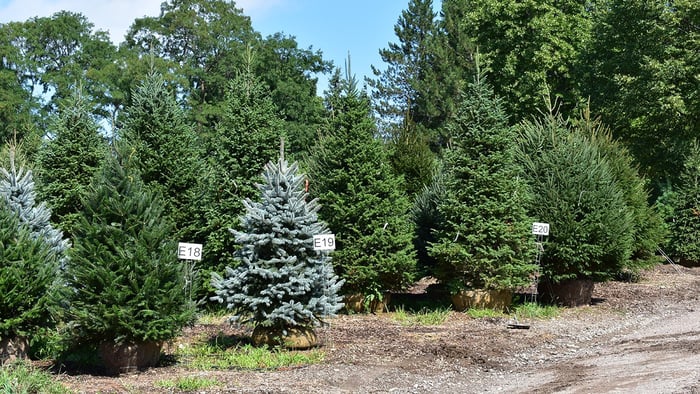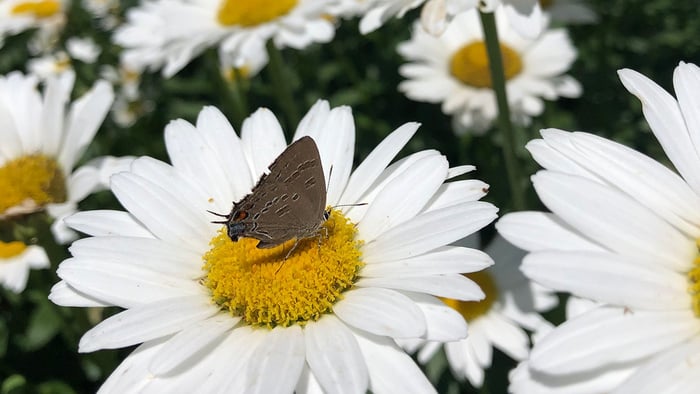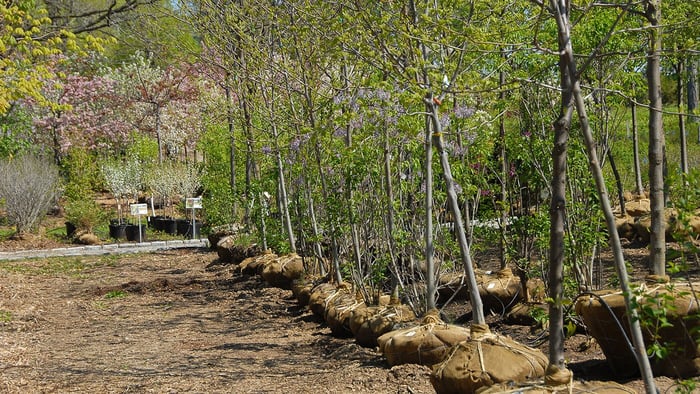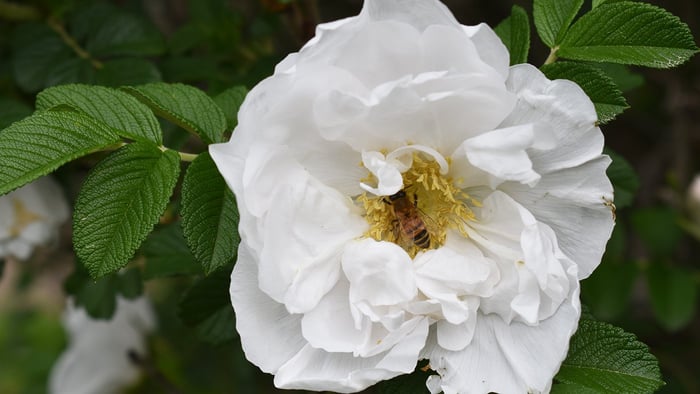
Favorite Ways to Garden with Roses
Roses are more versatile, hardy, and long-blooming than you may think. We carefully select varieties that will grow well in Vermont gardens. Learn about a few of our favorite ways to garden with roses in the landscape. Visit the nursery to see (and smell!) them blooming.
 Native Rosa palustris
Native Rosa palustris
Rain Gardens & Shrub Borders
Two recommended types for both shrub borders and rain gardens are the native roses we grow: Rosa palustris and Rosa virginiana. Rain gardens are a demanding site for many plants since soil conditions can vary so much. These two are tough roses that can meet the challenge. Both are also appropriate for naturalizing and in shrub borders since they won't be outcompeted by others like lilac and viburnum.
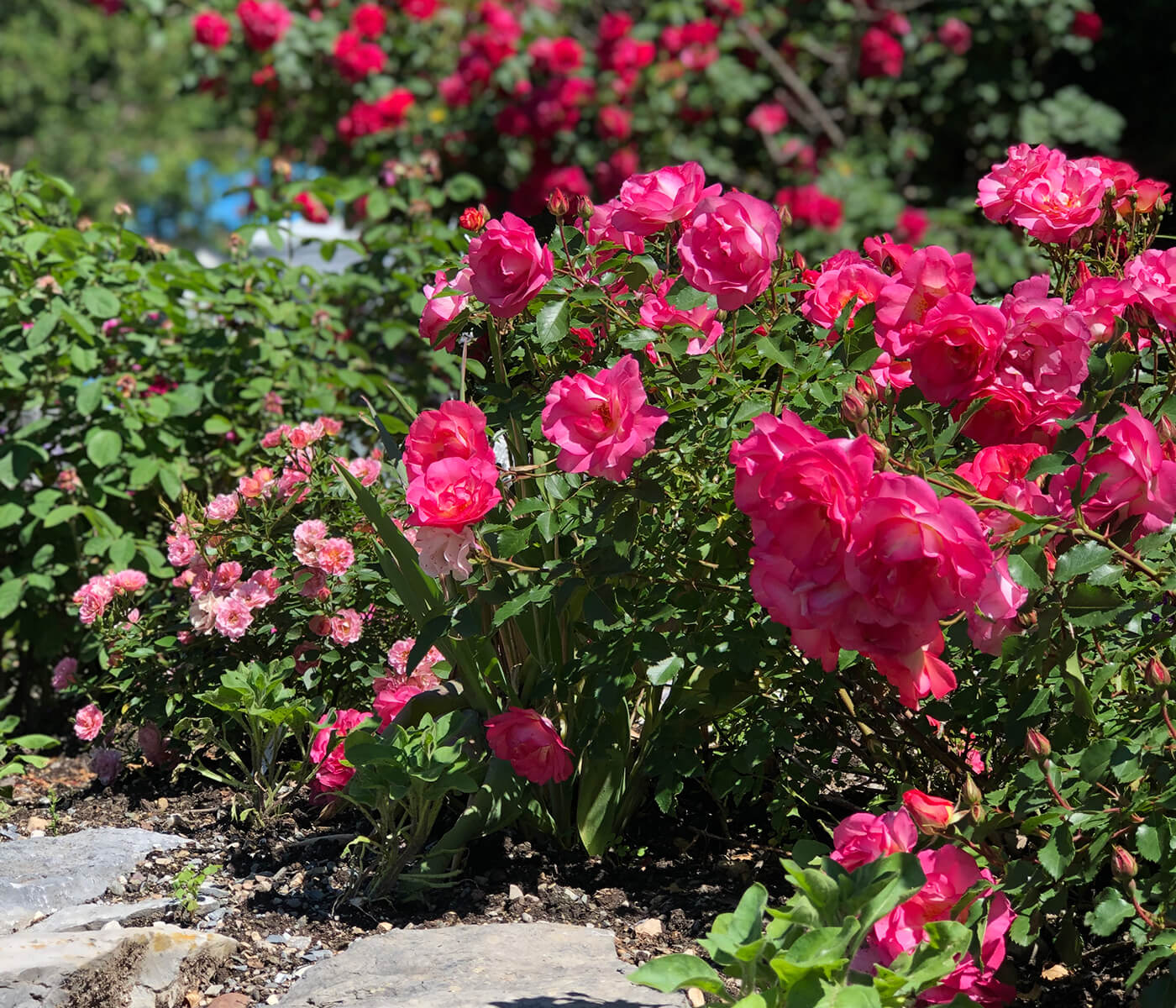 Low-growing varieties and climbing roses in the background
Low-growing varieties and climbing roses in the background
Non-Invasive Barrier
Roses are a non-invasive alternative to barberry and can serve as effective barrier plantings. Rosa rugosa are popular since they are salt-tolerant and fairly pest-free. If you need height to your planting, include a climbing variety.
Longest Blooming Landscape Roses
You'll see in our plant catalog that we refer to some varieties as landscape roses. These are tough, hardy varieties in incredible colors that have proven their versatility season after season. They include the Easy Elegance series, Knockout varieties, Oso Easy types, and the Explorer series. They bloom all season long and grow to be full, well-established plants. They're also excellent for slopes and a unique option for trailing over walls.
Paired in Perennial Gardens
Roses can certainly be mixed into perennial plantings. In the sun display gardens at the nursery, you'll see redleaf shrub rose's contrasting taller height and dark foliage. We look forward to its pink, star-shaped flowers each season too. 'The Fairy' is a lovely low-growing rose for mixing in perennial gardens. Another favorite rose and perennial pairing is with baptisia since they bloom together.
 Low-growing rose planted with perennials
Low-growing rose planted with perennials
Home Use
Rosa rugosa have the largest rose hips that are popular to dry and use at home. Be sure the variety you select isn't sterile, as some newer cultivars of Rosa rugosa are bred not to develop hips. If you're drying rose petals and buds, plant a mix of pink and dark-flowering types for a beautiful collection both in the garden and the pantry. Lighter colors tend to discolor once dried.
 Rosa rugosa hips
Rosa rugosa hips
Trellising Tips
We've found varieties in the Explorer series to be the best for trellising, 'William Baffin' being a favorite. Remember, roses need to be attached to trellises manually since they don't have a way of adhering like vines. You can weave canes through lattice or physically attach with clips or zip ties. There are also a few David Austin varieties with climbing habit.
 Climbing Rosa 'William Baffin' paired with baptisia
Climbing Rosa 'William Baffin' paired with baptisia




